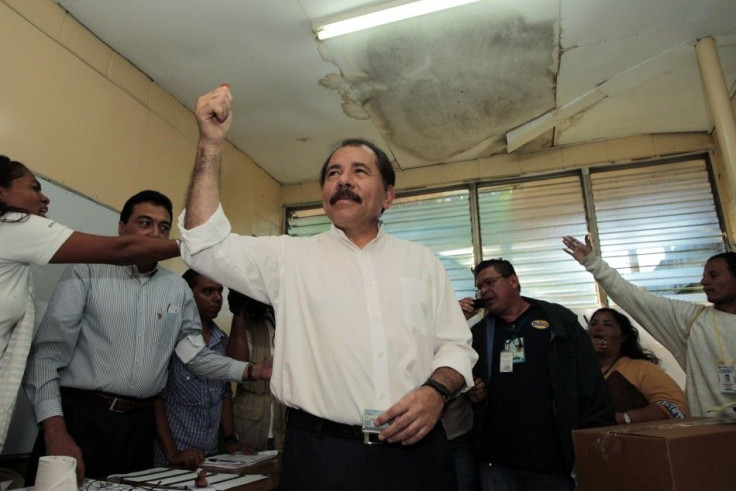Daniel Ortega: What Makes Him the Most Powerful Man in Nicaragua

Overcoming a constitutional limit on re-election, Nicaraguan President Daniel Ortega appears to be headed for a mandate to remain in office.
Nicaragua's electoral commission said preliminary results showed Ortega had secured 63.7 percent support based on a count of votes from 18 percent of polling stations.
Since the two main conservative opponents have failed to form an alliance against him, it is certain that he will remain in power. Consecutive re-election and possibly third terms are explicitly prohibited by the constitution of Nicaragua. But the Electoral Council and Supreme Court, controlled by Ortega's Sandinista party, did away with a ban on consecutive terms.
Ever since he led the Sandinista movement to overthrow dictator Anastasio Somoza in 1979, Ortega has been a leading figure in Nicaraguan politics. He ruled the country for the next 11 years.
He fought a civil war against the U.S.-backed contra rebels and was voted out of power in 1990. In 1996 and 2001, he failed to win his old job back. But in 2006, a change in image and a divided opposition helped him return to power.
Ortega became a strong ally of President Hugo Chavez of Venuzuela. Poverty levels have been considerably reduced. The country has seen economic progress mainly because of the financial aid from Venezuela In the last five years. Also, statistics from World Bank clearly indicate that poverty indicators are improving.
In the last five years, Ortega has attempted to present a new image by presenting himself as a devout Christian. He has also tried to give an image of being a moderate. At the same time, he continues to be part of the Chavez-led bloc of left-wing governments in Latin America. As a result, his relations with Washington remain tense.
© Copyright IBTimes 2024. All rights reserved.











